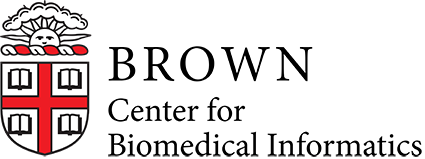6.3 Strings, Characters, and Regular Expressions in Julia
Documentation
Julia
Regular Expressions
Characters and Strings
Charis a single characterStringis a sequence of one or more characters (index values start at1)
Some functions that can be performed on strings
| Action | Function |
|---|---|
get word length | length(word) |
extract nth character from word | word[n] |
extract substring nth-mth character from word | word[n:m] |
search for letter in word | findfirst(isequal(letter), word) |
search for subword in word | occursin(word, subword) |
remove record separator from word (e.g., n) | chomp(word) |
remove last character from word | chop(word) |
Use typeof() function to determine type
Input:
# chars_and_strings.jl
letter = 'b'
word = "good-bye"
subword = "good"
word_length = length(word)
word_first_char = word[1]
word_subword = word[6:8]
println("Length of word: $word_length")
println("First character: $word_first_char")
println("Last three characters: $word_subword")
println("$letter is in $word: $(findfirst(isequal(letter), word))")
println("$subword is in $word: $(occursin(subword, word))")
println("chop off the last character: $(chop(word))")Output:
Length of word: 8
First character: g
Last three characters: bye
b is in good-bye: 6
good is in good-bye: true
chop off the last character: good-by
Regular Expressions (regex)
Regular expressions are powerful tools for pattern matching and text processing. They are representated ad a pattern that consists of a special set of characters to search for in a string str.
Functions
| Action | Function |
|---|---|
| Check if regex matches a string | occursin(r"pattern", str) |
| Capture regex matches | match(r"pattern", str) |
| Specify alternative regex | pattern1|pattern2 |
Character Class
Character class specifies a list of characters to match ([...] where ... represents the list) or not match ([^...])
| Character Class | ... |
|---|---|
| Any lowercase vowel | \[aeiou] |
| Any digit | [0-9] |
| Any lowercase letter | [a-z] |
| Any uppercase letter | [A-Z] |
| Any digit, lowercase letter, or uppercase letter | [a-zA-Z0-9] |
| Anything except a lowercase vowel | [^aeiou] |
| Anything except a digit | [^0-9] |
| Anything except a space | [^ ] |
| Any character | . |
Any word character (equivalent to [a-zA-Z0-9_]) | \w |
Any non-word character (equivalent to [^a-zA-Z0-9_]) | W |
A digit character (equivalent to [0-9]) | \d |
Any non-digit character (equivalent to [^0-9]) | \D |
Any whitespace character (equivalent to [\t\r\n\f]) | \s |
Any non-whitespace character (equivalent to [^\t\r\n\f]) | \S |
Anchors
Anchors are special characters that can be used to match a pattern at a specified position
| Anchor | Special Character |
|---|---|
| Beginning of line | ^ |
| End of line | $ |
| Beginning of string | \A |
| End of string | \Z |
Repetition and Quantifier Characters
Repetition or quantifier characters specify the number of times to match a particular character or set of characters
| Repetition | Character |
|---|---|
| Zero or more times | * |
| One or more times | + |
| Zero or one time | ? |
| Exactly n times | {n} |
| n or more times | {n,} |
| m or less times | {,m} |
| At least n and at most m times | {n.m} |
Input:
# regex.jl
number1 = "(555)123-4567"
number2 = "123-45-6789"
# check if matches
if occursin(r"\([0-9]{3}\)[0-9]{3}-[0-9]{4}", number1)
println("match!")
end
if occursin(r"\([0-9]{3}\)[0-9]{3}-[0-9]{4}", number2)
println("match!")
else
println("no match!")
end
# capture matches
# use parentheses to "capture" different parts of a regular
# expression for later use the first set of parentheses corresponds
# to index 1, second to index 2, etc.
number_details = match(r"\(([0-9]{3})\)([0-9]{3}-[0-9]{4})", number1)
if number_details != nothing
area_code = number_details[1]
phone_number = number_details[2]
println("area code: $area_code")
println("phone number: $phone_number")
endOutput:
match!
no match!
area code: 555
phone number: 123-4567
© Brown Center for Biomedical Informatics (BCBI) at Brown University. Last updated: November 15, 2022. Website built with Franklin.jl. Powered by the Julia programming language.
